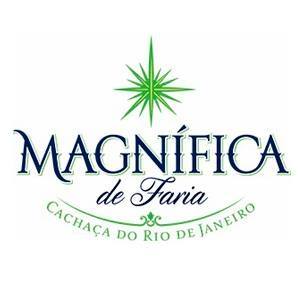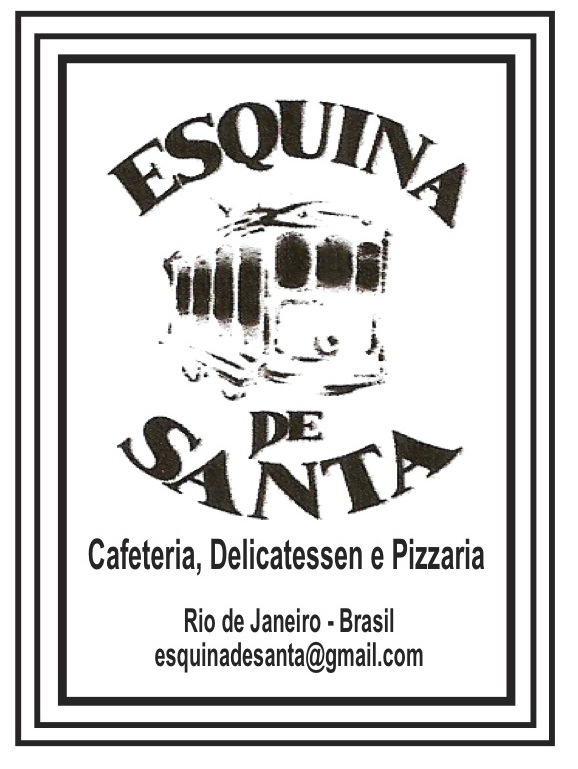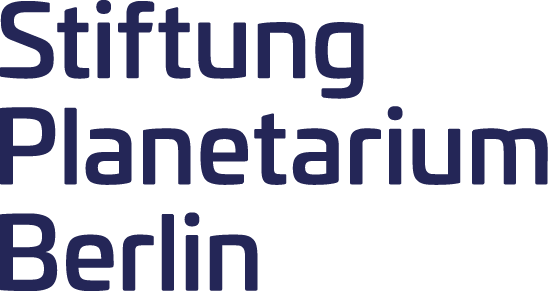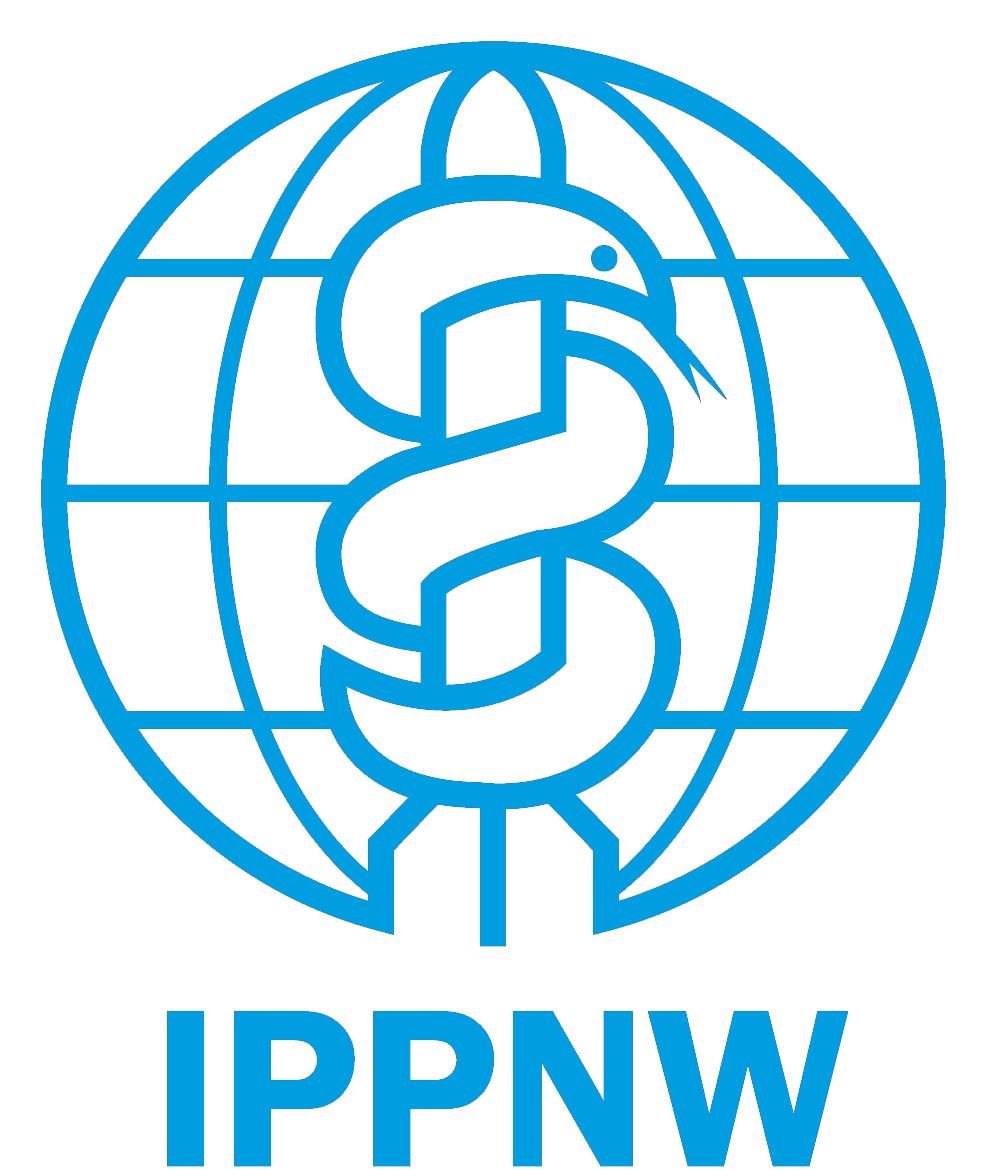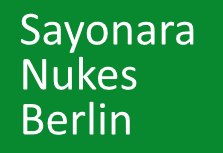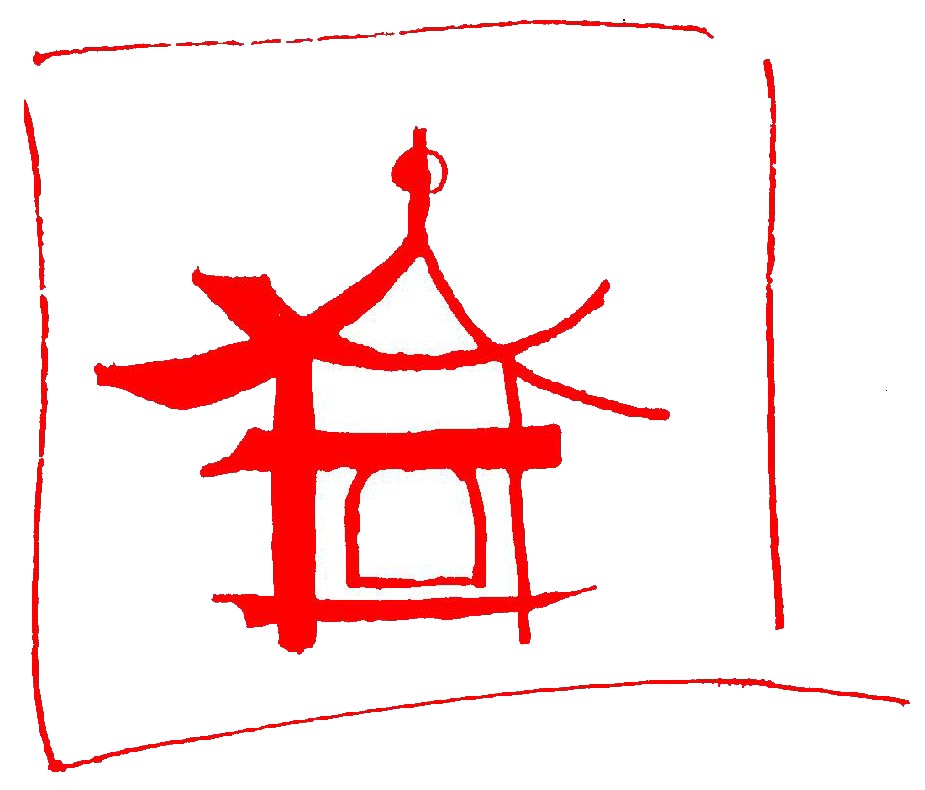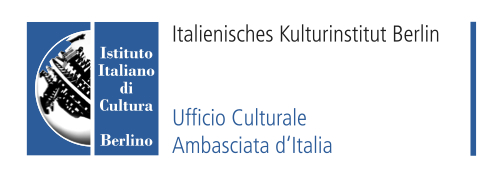Sorry: The Coronavirus-Situation worsened wold-wide. It is not possible anymore to organize the International Uranium Film Festival in Rio de Janeiro, May 21 - May 31, 2020.
Out of responsibility towards our international filmmakers and because of the global uncertainty over the next two months - we have to cancel and postpone the event. Please inform your colleagues and friends.
We ourselves, Marcia and Norbert, are held in Portugal. All flights to Rio have been canceled. The government of Portugal has tightened measures against Corona. And we don't know when and how we can fly home to Rio. In addition, our internet access is very limited.
All the best
Márcia Gomes de Oliveira & Norbert G. Suchanek
norbert.suchanek@online.de
info@uraniumfilmfestival.org
10th International Uranium Film Festival Rio de Janeiro at Modern Art Museum Cinema (MAM Rio), May 21 - 31, 2020
Preliminary Program
7:00 pm - Opening
THE SEAL OF THE SUN (TAIYO NO FUTA / FUKUSHIMA – 5 DIAS DECISIVOS)
Japan, 2016, Director Futoshi Sato, Executive Producer Tamiyoshi Tachibana Documentary, 90min, Japanese with Portuguese subtitles - Drama that re-enacts the five days after the Tohoku earthquake and tsunami of March 11, 2011. Juxtaposes the activities of a newspaper reporter pursuing the truth behind the nuclear power plant accident, Japanese government officials, and people who live in Tokyo and Fukushima. 2:46 PM on March 11, 2011. The earthquake hits and Japan is thrown into a panic. The cooling system at the Fukushima Daiichi Power Station goes down and the temperature rises. The countdown to an even more enormous catastrophe has started. Director Futoshi Sato, says about his film: „Born in the area that was devastated by the 2011 earthquake, I wanted to talk about it, but I was wondering what might be the approach to make it a movie. For his part, Mr. Tamiyoshi Tachibana wondered about the possibility of adapting the book written by Tetsuro Fukuyama, Deputy Director of the Cabinet of Naoto Kan. This book `The Nuclear Crisis – A Testimony from the Residence of the Prime Minister´ is a fundamental work that tells the truth of the events that occurred on those days at the Residence. If this project was able to start and be realized, it is thanks to the total and complete implication of Tamiyoshi Tachibana.
Film screening with presence of executive Producer Tamiyoshi Tachibana. After the film: Opening cocktail in the MAM Gardens.
Friday, May 22
2:30 pm
WITNESSES OF BARBARISM (TESTEMUNHAS DA BARBÁRIE)
Argentina / Brazil, 2019, Directed by Roberto Fernández, Documentary 39 min, Japanese with Portuguese subtitles - On August 6, 1945, the USA dropped an uranium atomic bomb on the city of Hiroshima. Ms. Toshiho Masada reports for the first time to her son Kenji her experience with the atomic bomb. Roberto Fernández is an Argentine filmmaker living and working in São Paulo since 2006 and saving the stories and memories of the Brazilian Hibakusha, the atomic bomb survivors living in Brazil.
With the presence of Director Roberto Fernandez and survivors of the Atomic Bomb attack on Hiroshima, members of the Hibakusha Brazil for Peace Association.
5:00 pm
Norway, 2018, Director Kristian Pedersen, Producer Tonje Skar Reiersen & Lise Fearnley, Mikrofilm, Animation, 5 min, no dialog - On August 6, 1945, there were two suns over Hiroshima. One was the dawn of a new day; the second was a nuclear bomb code-named "Little Boy“. Filmmaker and designer Kristian Pedersen graduated with an MA in Visual Communication from Bergen Academy of Art and Design. He works as an animator and director at Mikrofilm in Oslo, Norway. Trailer: https://vimeo.com/3752936933
BALENTES - THE BRAVE ONES (I CORAGGIOSI )
Italy/Australia, 2018, Director Lisa Camillo, Documentary, 84 min, English - When Sardinian-Australian Lisa Camillo, an anthropologist and film director, returns to Sardinia, an island of Italy, after an 15 year absence in Australia, to her horror she finds that large chunks of her homeland are devastated by mysterious bombs. On her journey she uncovers secret NATO bombing ranges that have been having devastating consequences on the local human and animal population, setting Lisa on a journey to expose the truth, join the islanders’ fight to reclaim their land and livelihoods and, in doing so, learning about herself and her roots. “Balentes’ is a Sardinian word indicating ‘a man of valour’, who strives for social justice, defending the weak against the oppressors. Sardinians have always been a warrior people, a fact sometimes forgotten, combatting the many invaders landing on their shores over the ages, testified by the recent archeological discoveries of the statues of the ‘Giants of Monte Prama’, ready to attack all invaders with courage and valour.” Lisa Camillo is a passionate human rights driven filmmaker, anthropologist, presenter and writer. She has directed, produced and wrote award-winning documentaries and films that travelled across the world in several international film festivals. http://www.balentesfilm.com
With the presence of director Lisa Camillo (not yet confirmed).
7:00 pm
Denmark, 2014, Director Peter Anthony, Producer Jakob Staberg, Statement Film, Co-production: WG Film, Doc-Fiction with Kevin Costner, Robert De Niro, Matt Damon, Stanislav Petrov, Sergey Shnyryov, u.a., Docudrama, 105 min, English with Portuguese subtitles - In the year 1983. The Cold War is seconds from exploding. The world holds its breath as the superpowers USA and Russia are arming themselves against each other with thousands of nuclear missiles. On the 26th of September, Russian radars intercept five nuclear missiles on their way to Russia. Stanislav Petrov is commander-in-chief. The decision that would start World War III rests on his shoulders. Should Russia fire nuclear missiles at the United States in defence? 'The Man Who Saved the World' is an epic Cold War thriller that sends shivers down your spine, while also being a gripping story about the man who actually saved the world, and his struggle to get his life back on track before it is too late. Peter Anthony is a Danish director, screenwriter, set designer, architect and graphic designer. Graduating from The Royal Academy of Fine Arts in Copenhagen (1999) with a bachelor's degree in architecture from École Nationale Supérieure des Beaux-Arts in Paris (1996). The Man Who Saved the World is Anthony's international debut as a feature-length film director. In addition to serving as the film's director, Anthony also contributed as a scriptwriter, co-editor, set design consultant and graphic designer.
“I often get the chance to play a hero. But Stanislav is a true real-life hero. Few people know about Stanislav Petrov. But hundreds of millions of people are alive because of him." Kevin Costner.
With the presence of film director Peter Anthony from Denmark.
Saturday, May 23
4:30 pm
United States, 2011, Director Stacy Libokmeto, Documentary, 26 min, English, Marshallese - When the United States asked to use the Marshall Islands as an atomic testing ground after WWII, they told the islanders it was “for the good of mankind.” In this exchange, the islands were inundated with an average of 1.6 Hiroshima bombs every day for 12 years. The American nuclear tests may have ended 70 years ago, but the effects of their legacy lingers in the land and the bodies of the Marshallese themselves. Filmmaker Stacy Libokmeto is half Marshallese, half American who was born under the tall trees of a mid-sized Oregon town. Stacy moved to New York City to pursuit a Master's in News and Documentary at New York University. There she produced her first documentary "Children of Strategic Trust," an idea that started as a promise to herself to one day tell this story for the family who could not. https://misadventuristfilms.com/about-us/
6:00 pm
Italy, 2019, Director Stefano Bertelli, Animation Music Video, 4 min, English - In a park with a small lake there is a house on a tree. Here the memories come back to life, the shadows of children persist over time, but one day that place will be razed to the ground, building a nuclear power station that will exploit the water of that lake. Ionizing radiation into the water will produce a blue light (Cherenkov radiation) that will be projected into the universe in memory of that place. Stefano Bertelli is a Music Video director and worked for Robbie Williams, Monsta X + Sebastian Yatra and others. He mainly uses stop motion animation with original paper models.
Japan, 2018, Director Ayumi Nakagawa, Documentary, 65 min, Japanese with English subtitles - There are many evacuees who had been driven into the poverty after the Japanese government cut off the housing subsidies for those who fled their house after the nuclear disaster in Fukushima in March 2017. Kazuko, who fled her house to Tokyo with her two primary school daughters, has to work over the weekend to pay the expensive rent in Tokyo. She is irregularly employed, which means that if she gets sick, it would affect her income. There are 34,000 evacuees from Fukushima and this is the documentary to address once again, what is the actual revitalization. We will feature three mothers, who voluntarily choose to flee from their home to Tokyo and its suburbs, struggle to settle down into a new life to seek what is best for their children’s future. We will introduce the stories of women who endeavour to survive in adverse circumstances, while the memory of the nuclear disaster is fading. How come they are particular about living in Tokyo while their husband remains in Fukushima? Why society has not reached out to those mothers who struggle to protect their children? Ayumi Nakagawa is a documentary film director who often focuses on groups on the margins of society.
Sunday, May 24
11:00 am
Fukushima & Angra
Round table and Q & A about nuclear safety of nuclear power plants in Japan and Brazil with nuclear scientists, filmmakers and the participation of international guests like Producer Tamiyoshi Tachibana.
4:00 pm
United States, 2019, Director Kamen Sway, 14 min, French - Film about nuclear scientist Marie Curie and how she discovered radium. While in her moment, the female scientist Marie Curie flashes back over the trials and tribulations of her harsh but purposeful life and what it took to accomplish what she did. Kamen Sway is a Miami Dade College Dean’s list Alumni with Honours and the former Vice President of the prestigious Golden Key International Honor Society. Kamen was awarded Best Directing Award for his short film 'Tesla' from NATAS-The National Academy of Television Arts & Sciences of the Sun Coast Chapter in Florida, the film has also won Best Visual Effects film award at the Flamingo Film Festival. Kamen: „I consider myself a passionate filmmaker who utilizes the storytelling of the visual medium as way to influence and inspire people towards a positive change in their lives.“ https://vimeo.com/381475755
THE ATOMIC ADVENTURE /L'AVENTURE ATOMIQUE
France, 2019, Director Loic Barché, Doc Fiction, 25 min, French with English subtitles - Algeria in the year 1961. France has just detonated its fourth atomic bomb. A group of seven soldiers is sent to the point of impact to take samples and measure radioactivity. But the further they go, the more the Captain, a war veteran in his fifties, is confronted with the paradoxes of a changing world. Loïc Barché is a young filmmaker from Tour. His short film GOLIATH starring Swann Arlaud and Phénix Brossard, produced by Punchline Cinéma, was shortlisted for the Cesar in 2018
RADIOACTIVE BRITTANY - BRETAGNE RADIEUSE
France, 2019, Direction Larbi Benchiha, Documentary, 52 min, French - Many of us do not know it: More or less 250 uranium mines were explored in France from 1945 to 2001, resulting in 252 million tons of radioactive waste that remain in the ecosystem. Between 1955 and 1984, 42 uranium mines were explored in Brittany. 26 of them are in the department of Morbihan. This uranium mining and extraction produced waste that remains harmful until today. The radiation in the people's backyards are 1,000 to 3,000 times higher than tolerable. Filmmaker Larbi Benchiha documents the legacy of uranium mining in Brittany.
6:00 pm
Spain, 2018, Director & Producer Eduardo Soto Pérez, documentary, 30 min, Spanish with Portuguese subtitles - In 2010, the town of Villar de Cañas (40 km from Cuenca, Spain) was assigned the construction of a Centralized Temporary Storage Facility (CTS) to store the high-level nuclear waste from seven nuclear power plants in Spain. The anti-CTS Platform brought together a large team of activists that neutralized the development of the works for 8 years, with peaceful protests, with information and with the help of the law. Filmmaker Eduardo Soto Pérez writes: „We shot THE LEAK in 2018 to show a radioactive future that we don't want for Cuenca or anyone. “ More Info: https://lafugaradiactiva.com/
United States, 2018, Director Keith Reimink, Animation Documentary, 75 min, Japanese with English subtitles - Cold war in the 1950ies. The US testing nuclear bombs in the Pacific. 23 Japanese fishermen aboard the tuna trawler Daigo Fukuryu Maru (Lucky Dragon No. 5) accidentally encounter the detonation of Castle Bravo, an early hydrogen bomb test conducted by the US. All 23 men became sick from acute radiation poisoning and were quarantined for 15 months upon arrival back to Japan. In the hospital, they endured endless medical tests and scrutiny from Japanese and American doctors. They also watched their esteemed colleague, Aikichi Kuboyama, pass away from exposure. Having all received high doses of radiation, the surviving fishermen were forced to consider their own mortality. In June of 1955, the 22 fishermen were sent home only to discover their problems were far from over. Because of the ignorance surrounding 'hibakusha,' or ‚radiation-affected people,' the fishermen were ostracized from their communities. They lost friends and loved ones, were openly ridiculed, and eventually forced into hiding. 'Day of the Western Sunrise' is an animated Japanese language documentary that follows three survivors from the Lucky Dragon. Now in their 80's, their story is a reminder that the human race has the ability to make decisions for both good and ill, and those decisions can affect generations. Filmmaker Keith Reimink graduated from New York University's Tisch School of the Arts with a BFA in Film and TV Production. His first documentary, the award-winning 'No Horizon Anymore,' chronicled a year he spent living and working at Amundsen-Scott South Pole Station. He writes: „It is the belief of the filmmakers that above the ideas of politics, religion, and financial gain, must be the ability to create a peaceful and thriving society. Operation Castle, consisting of six thermonuclear detonations over the course of five months, happened at a time when the focus of the world centered on strength, domination, and fear rather than unity and acceptance. The global impact of these thermonuclear tests is still felt today by the Marshallese who were displaced from their homes on Rongelap and Bikini and are unable to return, and by the Japanese citizens who look to international governments to release still classified documents.“
Tuesday, May 26
5 pm
PROTECTING OUR HOMELAND: NUHE NENE BOGHILNIH
Canada, 2017, Director Ashton Janvier, Producer Wapikoni, Documentary, 4 min, English and Dene, English Subtitled Language - North of La Loche there is a beautiful area called Patterson Lake. Its landscape and natural resources are important to the Denesuline people. This territory is used for family camping, swimming and site seeing. But the Federal Government and uranium companies want to mine this beautiful land. Uranium is right under the lake. They are planning to drain the lake and destroy all the surrounding natural resources, which is completely devastating. Filmmaker Ashton Janvier is a young Denesuline from the community of La Loche. He attends University through a program at the Clearwater River Dene Nation School on the reserve. He writes about his film: „I believe it is important to educate people on what is happening in Northern Saskatchewan. Protecting our Homeland is to inspire the young generation to start caring about our lands ands cultures. It is also to promote awareness on the uranium mining exploration in Patterson lake, SK.“
Australia, 2019, Director Kim Mavromatis, Documentary, 10 min, English - People of the Flinders Ranges Speak Out (Graziers, Tourism operators, Adnyamathanha and Nukunu people, residents, business owners and doctor) to Protect the Flinders, their communities and future generations from Radioactive Nuclear Waste Dumps. If climate change is the defining issue of our time, then nuclear waste is the hangover. Kim Mavromatis is Multi-Award-Winning Mixed Media Creator, Filmmaker, Cinematographer, Editor, Visual Artist and he is living in South Australia near the proposed nuclear waste dump sites. He says about his film: "Why on earth does the Australian Federal government want to dump nuclear waste in the Flinders Ranges, on a floodplain, in a seismically active region, bordered by natural springs, in one of Australia’s most iconic tourism destinations, or on Eyre Peninsula farmland near Kimba, in South Australia? I live along the transport route, near the 3 proposed dump sites in the Flinders Ranges and Kimba on Eyre Peninsula farmland, in South Australia. For 5 years I have been filming this story. Save the Flinders is one of 7 short films in the series (self funded). In this film, people of the Flinders Ranges Speak Out - ordinary people have been forced into activism to protect their communities and future generations."
Film screening with presence of Director Kim Mavromatis (not yet confirmed)
Australia, 2018, Director Alexander Hayes & Magali McDuffie, Documentary, 40 min, English - The Adnyamathanha people of the Flinders Ranges region of South Australia have fought for many years to protect their country from a nuclear waste dump facility planned by the Federal Government on their land. This is their story. "Protecting Country“ was produced with, for, and by South Australian Aboriginal people, and entirely self-funded to make sure their important message got out to the world - Adnyamathanha people do not want an international nuclear dump on their Country.“ As a professional filmmaker, Magali McDuffie has worked for nearly twelve years with and for Aboriginal communities across Australia, and has also been engaged in a wide range of local and regional projects both as a filmmaker and consultant.
7 pm
THE INVISIBLE FALLOUT / INVISIBLES RETOMBÉES
France, 2019, Director Cris Ubermann, Producer CRIIRAD, Documentary, 45 min, French with English subtitles - Nuclear disasters like Chernobyl and Fukushima cause massive releases of radioactive substances to the environment and lasting contamination of large areas. They are accompanied by lies about the severity of the contamination and the extent of the health risks. The manipulations are all the easier since the radioactivity cannot be seen. Given its aging nuclear fleet, France is particularly affected by nuclear risks. Produced by the association CRIIRAD (Independent Research and Information Commission on Radioactivity) and by Cris Ubermann, the film "Invisibles Retombées", is based on the missions led by the CRIIRAD laboratory in Japan to make this invisible radioactivity palpable and to show the consequences for the populations affected by the fallout. Cris Ubermann began making experimental short films in the 90’s in his native France. His urge to make films was triggered by extensive study of psychoanalysis and philosophy, which led him to discover and pursue the powerful impact of “images in movement” on human subconsciousness. His current works include collaborations with wellknown humanitarians and artists from around the world. http://www.crisubermann.com/
GREEN WARRIORS - SOUTH AFRICA: TOXIC TOWNSHIPS (VERT DE RAGE - AFRIQUE DU SUD: TOXIC TOWNSHIPS)
France, 2018, Director Martin Boudot, 54 min, English - Johannesburg is considered the most uranium-contaminated city in the world. Waste dumps from around 600 abandoned mines sit next to residential communities, blowing polluted dust into homes and contaminating the soil and water supplies. To get a sense of the sheer extent of the problem, Martin Boudot and his team of researchers investigate. Equipped with a Geiger counter, they uncover some dangerous realities. Martin Boudot is a French investigative journalist and documentary filmmaker based in Paris, France. He is the host and producer of Green Warriors, a series of scientific investigations on environmental issues, broadcast on France 5, Al-Jazeera, Amazon Prime. He graduated from the Professional Journalism School of Tours (EPJT) and achieves his cameraman training at the University of Northern Colorado, USA. He then worked for several TV stations & agencies like ABC News in Denver, Premières Lignes Télévision, France Televisions, Canal + and Arte.
Wednesday, May 27
2:30 pm
Session with films with Portuguese subtitles about Chernobyl.
5 pm
2019, Australia, Director John Mandelberg, Documentary, 97 min, English - A feature documentary about the effects of Nuclear weapons & testing. In Australia, the tragedy of uranium exploration, mining and British atomic testing in 1950’s Aboriginal Australia. Starting at the Hiroshima bomb and ending at the nuclear meltdown in Fukushima. The historic tragedies and fear told by atomic bomb witnesses, activists, filmmakers, artists, actors, writers composers, doctors, professors. Aboriginal Actress, Ursula Yovich reflects on her visit to Hiroshima, her appeal that “No place in the world for Nuclear weapons!” John Mandelberg is an Australian Filmmaker and academic who lives today in New Zealand. He was working in the Australian Film & television Industry for 30 years. He writes about his film: „Since I was a child I have always been interested in and feared the Nuclear story: the atomic bombing of Hiroshima, Nagasaki and nuclear testing by Major powers in the West and East on indigenous lands all over the globe. This includes the indiscriminate 1950's British nuclear testing on Aboriginal lands that effected so many communities.“
7:00 pm
Broken Arrow. Nuclear Accident in Palomares (OPERACIÓN FLECHA ROTA. ACCIDENTE NUCLEAR EN PALOMARES)
Spain, 2007, Director Jose Herrera Plaza, Producer Antonio Sánchez Picón, Documentary, 96 min, Spanish-English with Portuguese subtitles - In January 1966 two American airplanes collided over Palomares (Almería-Spain) and as a consequence, four H-bombs fell to hearth. Two of them explode their conventional charge and due to the strong wind radioactive material, especially deadly Plutonium is scattered over the region. The US started an intensive search to find the fourth bomb that was dropped into the sea in front of the beaches ready to be developed as tourism resorts. Filmmaker José Herrera Plaza has a degree in Economics and Video production and worked for Canal Sur Television. He is co-author of the book “Operación Flecha Rota. Nuclear Accident En Palomares ”. He writes about his film: „This is the story of a lie that was born during the Cold War, the Franco dictatorship and the genesis of the nuclear industry in Spain. A story that is still looking for a final solution.“
With the presence of film director José Herrera Plaza.
Thursday, May 28
2:30 pm
Session with films with Portuguese subtitles.
5 pm
FUKUSHIMA NO DAIMYO (O Senhor de Fukushima)
Italy, 2014, 20 min, Documentary, Director Alessandro Tesei, Soundtrack: Giulio d’Agostino, Photography: Pierpaolo Mittica, Japanese with Portuguese subtitles. After almost two years after the accident at the Fukushima Nuclear Power Plant, Masami Yoshizawa, the cattle breeder who never left the evacuation zone, grants a unique interview. He explains what has become his mission. The land is definitely lost, and the radioactive pollution will never go away. Conscious of this, he remains in his farm and tries to let the world know about the tragic consequences of radiation exposure. At the same time, he raises a disturbing question: have you to flee and abandon your own contaminated land or do have to accept the radioactivity, continuing to fight and live in your land? Alessandro Tesei is awarded filmmaker and photographer dedicated to the question of radioactivity and has filmed and visited several contaminated places around the globe. He writes about his film: „I was one of the first western filmmakers sneaked inside the forbidden area around the Fukushima Daichi nuclear power plant, only six months after accident. I remember the fear in my heart that became higher every time the Geiger counter showed a radiation increase, and I remember the loneliness of the evacuated people and the dramatic situation of the families, splitted in different parts, due to the incapacity of the Japanese government to find a solution.“ Fukushima No Daimyo won several festival awards in Italy. http://www.alessandrotesei.com
SEVEN YEARS OF WINTER (SETE ANOS DE INVERNO)
Germany/Denmark/Ukraine, 2011/12, Director Marcus Schwenzel, Producer Hans Henrik Laier and Marcus Schwenzel. Fiction, 22 min, Russian with Portuguese subtitles - Short film by German director and scriptwriter Marcus Schwenzel, starring German actors Hannes Jaenicke and Roman Knizhka and 11 year old actor from Kiev, Sasha Savenkov: Seven-year-old Andrej scavenges the nuclear wasteland of Chernobyl for discarded documents to trade on the black market. Shot entirely on location, this is a haunting rumination on the heartbreaking effects of the political on the personal. Schwenzel’s film starts off as a straightforward narrative but once Andrej enters the radiated Chernobyl, the film soon turns into a location showcase of the desolate environment. Because the setting is so unforgettable and the cinematography is captured so excellently, we never have a problem with this change. Sasha Savenkov puts forth a fascinating one-man (or in this case, one-little boy) performance that will certainly have moviegoers looking out to see where his acting career goes from here. The technical feats trump the story, which the film is light on. German film director Marcus Schwenzel studied at the Prague Film School and received several international festival awards for his films.
With the presence of film director Marcus Schwenzel.
7 pm
Switzerland, 2015, Director Marcel Barelli, Producer Nicolas Burlet, Nadasdy film, Coproduced by RSI Radiotelevisione svizzera. Animation, 7 min, French with Portuguese subtitles. The story of the first nuclear power plant 100 per cent in Switzerland ... but also the last. Born in 1985 in Lodrino (Switzerland), Marcel Barelli work as Laboratory chemist until 2005. Then he (changed completely his mind and) graduated from the HEAD (Haute École d′Art et de Design de Genève), cinema section, in 2009. Since then he lives in Geneva and works as animation-films director in Geneva. His animation Lucens received the Canon award (best animated short) Innsbruck Nature film festival 2015, the Best short film award, Green Culture Festival "Green Fest" 2015 Belgrade, the Best short film, Greenmotions Film Festival 2015 Freiburg and the Award as Best Animation of the International Uranium Film Festival 2016. http://lucensfilm.blogspot.com.br & Trailer: https://vimeo.com/134106134
NUCLEAR FREE POWER TO THE PEOPLE / ATOMLOS DURCH DIE MACHT
Austria, 2019, Director Markus Kaiser-Mühlecker, 74 min, Documentary, German/English with English subtitles - Austria is the only country which built a fully functional nuclear power plant and after peoples vote against it in 1978 didn't engage it. The film traces the anti-nuclear-movement in Austria, with all aspects of nuclear power in Europe, showing the history and provides an outlook on the future. As meta-theme the activities of the NPO "Atomstopp" are shown, their fight alongside democratic institutions from local government to EU-offices. So the film shows the very multifaceted topic with regards to technology, health, environment, politics and democracy, public movements and energy policy. Filmmaker Markus Kaiser-Mühlecker studied film, video and audio at the University of Applied Sciences Salzburg and sociology at the University of Vienna. Since 2005 he has been living and working as a documentary and corporate filmmaker near Linz. „Nuclear free power to the people“ is his second feature length film and received in 2019 the RAGFF Venezia best retro avantgarde documentary feature film award.
Friday, May 29
2:30 pm
Brazil, 2011, Director Michael Valim. Video art / modern dance and musical performance, 9 min, without dialogue - To remember the accident of Cesium 137 in Goiânia, the dance & music groups „Por qua?“ and „Vida Seca“ performs a modern dance performance in the Rua 57, number 60 which was 30 years ago the most radioactive contaminated place in the city of Goiânia. Trailer: https://vimeo.com/49859373
Something that Remains (Algo do que Fica)
Brazil, 2017, Direction Benedito Ferreira. Fiction, 23 min, Portuguese - A personal and sensitive reflection on the radioactive accident of Goiânia, 1987. The worst nuclear disaster in Brazil and Latin America. At Brazil's largest environmental film festival, FICA 2017, in Goiás, the short film and its director Benedito Ferreira de Goiânia received several awards including the Best Short Fiction Award of the Uranium Film Festival 2017. Trailer: https://vimeo.com/218011640
With the presence of filmmaker Benedito Ferreira.
17h
Denmark/UK - 2019, Director Ömer Sami, Documentary, 23 min, English - Growing up in the shadows of Britain’s biggest new nuclear power plant, Hinkley Point C, eleven-year-old Sam is worried about what it means for the world around him and must decide what kind of person he wants to be. Drifting between his daily life and dreams, the film explores themes of holding on and letting go, and growing up. Sam believes the only way is to go a private school – but his parents can’t afford the offer. As a last resort, they turn to the power company for funding, forcing Sam to decide. This Guardian documentary meets a boy who must choose between opposing Hinkley Point C nuclear power plant and benefiting from its educational bursary. Hinkley Point, on the Somerset coast, is the biggest building site in Europe and the most expensive nuclear power station in the world. Ömer Sami is a young documentary filmmaker of British-Trinidadian, Turkish-Irish decent. He tells character-led stories, often through a child’s eyes and mind. Alongside filmmaking, he works as a screener for the Sundance Documentary Film Program and a programming consultant for Concordia Studio’s Artists in Residence fellowship program. He is currently studying Documentary Directing at The National Film School of Denmark in Copenhagen. His film Sam and the Plant Next Door (The Guardian) received the Ekko Shortlist Award for Best Documentary.
With the presence of director Ömer Sami (not yet confirmed).
UK/USA, 2019, Director Leana Hosea, Documentary, 72 min, English - You might think America is free, but at its heart is a great injustice. Access to clean water is being segregated. Armed only with facts and their illnesses, extraordinary citizens take on industry and government, risking arrest to protect water. From Flint to the Navajo Nation, via Standing Rock, this is their story. Leana Hosea is a multi-media journalist with over 12 years of experience working for the BBC in global news and current affairs. She writes about her film: „I was breaking news in Cairo, Egypt reporting on The Arab Spring from day one in Tahrir Square, the war in Gaza and the crisis in Yemen. However, I have never seen anything like what I found when I visited the Navajo Nation. Communities are living amid piles of radioactive waste, drinking uranium contaminated water. Yet no one I spoke to afterwards seemed to know anything about it. It has not got the media attention it so deserves. What’s unique about ‘Thirst For Justice’ compared to other water films, is how it tightly weaves together water issues in urban/rural, indigenous/non indigenous communities through the women who are leading the emerging water justice movement.“
7 pm
Germany, 2011, Animation. Director and Producer Anna Luisa Schmid, No Dialogue. 2 min - An answer to the nuclear-power-campaign in Germany 2011. We are watching a man on his morning routine who doesn’t know what he affects at the other side of the planet. https://vimeo.com/81749731
VOM SINN DES GANZEN (About the Meaning of Everything) - The Network of Physicist Hans-Peter Dürr (1929 - 2014)
Germany, 2020, Director Claus Biegert, Production Biegertfilm, Documentary, 103 min, German/English with English subtitles - As a physicist he followed the footsteps of the world re-nowned Werner Heisenberg.
As a peace activist he was torn between his PhD supervisor Edward Teller and peace Nobel laureate Josef Rotblat, both of them involved in the Manhattan project during World War II. When it became obvious that Hitler would not built an atomic bomb (Wunderwaffe), Rotblat immediately resigned from Los Alamos, Teller stayed and became the "father of the hydrogen bomb". In the early 1950s, the young and naive Hans-Peter from Stuttgart, Germany, stepped into the bomb euphoria in Berkeley, California. It shaped his life. He became a role model for a scientist with responsibility. The film offers previously un-known material about encounters of Dürr with Teller and Rotblat. A film with Franz Alt, Angelika Claussen, Daniel Dahm, Sue Dürr, Giselle Full, Tiokasin Ghosthorse, Hartmut Grassl, Isabelle Krötsch, Rudolf zur Lippe, John D. Liu, Josef Rotblat, Heinrich Saller, Erhard Seiller, Rupert Sheldrake, Edward Teller, Ulrich Warnke, Andreas Weber, Konstantin Wecker, Ernst-Ulrich von Weizsäcker. Claus Biegert is a journalist, author, film-maker, radio reporter and human rights activist, based in Munich, Germany. He published numerous books on Native Americans and environmental issues. For many years he had his own radio program at the Bavarian Public Radio. In 1979/80 he collaborated with visual artist Rainer Wittenborn and many Cree hunters in the multi-media exhibition “James Bay Project – A River Drowned by Water”, which traveled – under the patronage of the Goethe Institute – the world for almost ten years. Among his films are “The Secret and the Sacred – Two Worlds at Los Alamos”(2001), “Winona LaDuke – Thunderbird Woman”(2003), “Leonard Peltier: I am the Indian Voice”(2013) and “Exit 16 – Onondaga Nation Territory”(2014). Biegert is the initiator of the World Uranium Hearing, 1992 in Salzburg, Austria, and the co-founder of the international Nuclear-Free Future Award, which started in 1998. https://www.biegert-film.de
With the presence of director Claus Biegert (not yet confirmed).
Saturday, May 30
4:30 pm
Moldova/Romania, 2019, Director Dragoș Turea, Producer Parmis Film Studio and RovaFilm, Documentary, 76 min, Romanian with English Subtitles - Dragosh, filmmaker from Moldova which was formerly part of the Soviet Empire, discovers a secret scientific experiment. Through nearly ten years of investigations, Dragosh unveils the secret plan of Nikita Khrushchev to transform Moldova into a Soviet Garden through the application of atomic energy in local agriculture. Agricultural Chernobyl. The price for those experiments is paid today: radioactive contaminated lands, population still being kept uninformed, more and more people suffering from cancer, infested equipment hidden in bunkers, reduced biodiversity, lost seed heritage. And many of those who were involved in those experiments have died very early. Filmmaker Dragos Turea was born in Chisinau, Moldova in 1980 and studied Audiovisual Communication at the Academy of Theatre and Film, Bucharest and has a Master’s Degree in Film, at the Chisinau Academy of Music, Theatre and Arts. He worked as a Producer for Publika TV, Prime TV and Jurnal TV. Already in 2010 he started ‘’The Soviet Garden“.
6:00 pm
JOURNEY TO THE SAFEST PLACE ON EARTH (JORNADA AO LOCAL MAIS SEGURO DA TERRA)
Switzerland, 2013, Director Edgar Hagen, 100 min, documentary, German with Portuguese subtitles - Lethal, highly radioactive nuclear waste from decades of nuclear power use will endure for centuries. Locating a final repository for the waste is one of the great challenges facing the world, and experts are searching for secure, geologically stable places around the world. Director Edgar Hagen examines the limitations and contradictions of this global quest. Nuclear power advocates and opponents face up to this responsibility and struggle for solutions. Dogmatic attitudes from both sides become unstable. Edgar Hagen studied Philosophy and German at the University of Basel and at the Free University Berlin. Since 1989 he works as independent documentary filmmaker and was for ten years Board member of Swiss Filmmakers Association and is since 2013 Head of Directing Documentaries at FOCAL. He writes about his film: „Ever since atomic energy was first used for commercial purposes in 1956, we create the most dangerous by-product ever in the process. This high-level nuclear waste will pose a threat for hundreds of thousands of years. There are currently 350,000 tons worldwide – with a further 10,000 produced each year. The waste is placed in interim storage, in cooling ponds and in interim storage sites around the globe. In order to escape this dilemma, all of the atomic energy producing countries have adopted the same political strategy: finding suitable places for deep geological repositories. Locating sites to rid future generations of this threat for all eternity. Such a site can only be the safest place on earth.“
With the presence of filmmaker Edgar Hagen.
Sunday, May 31
11:00 am
Nuclear Power and Climate Change
Round table and Q & A with scientists, activists, filmmakers and international guests.
5:00 pm
Poland/Italy/Luxemburg/USA, 2019, Director Lech Majewski, Producer Lech Majewski and Filip Rymsza, Co-production Poland-Luxembourg, Royal Road Entertainment, Cast Josh Hartnett, John Malkovich, John Rhys-Davies, Bérénice Marlohe, Keir Dullea, Steven Skyler, Joseph Runningfox, Ficition, 126 min, English - The film weaves together three narrative threads: Navajo archaic legend about gods locked inside the rocks of the Valley of the Gods; a story of the wealthiest person on earth, Wes Tauros (John Malkovich), who lives hidden away from the world suffering from a personal tragedy; and that of the narrator, John Ecas (Josh Hartnett), who works as a copywriter at Tauros’s company. After a traumatic split from his wife, John starts writing his boss’s biography and accepts an invitation to his mansion. At this time Tauros’s company, which mines uranium ore, buys the Valley of the Gods to bore tunnels through the sacred land. The shattered peace of Navajo ancestors makes the rocks give birth to an avenger. Film director Lech Majewski is also a poet, painter, media artist and writer. Working internationally, he builds his visions in his paintings, films, installations, novels, theatre and opera stagings. He studied at Krakow Academy of Fine Arts and graduated from the National Film School in Łódź, Poland. His video, film and art works have been shown in a variety of galleries and museums around the world, including: Galerie Nationale du Jeu de Paume, Paris; Whitechapel Art Gallery, London; Museo des Belles Artes, Buenos Aires; Image Forum, Tokyo; Tel-Aviv Museum of Art; The National Gallery, London; The Prado, Madrid; Art Institute of Chicago; The Louvre and at the Venice Biennale and The Museum of Modern Art in New York. Majewski about his film: “The Great Chief of Navajo Nation ordered his people to play in my film. He said that this was a very good movie for them as he’d never seen an American production that would show the world from their perspective. Usually the Indians are portrayed from the white man’s point of view. Indians either circle their opponents, make strange sounds and shoot arrows, or are tortured and treated unfairly. I adopted a different way of storytelling, the logic that is found in their religion and mythology."
With the presence of director Lech Majewski (not yet confirmed).
After the film screening: festival awards ceremony and cocktail party in the MAM Gardens with Cachaça Magnífica.
Venue/Location Museu de Arte Moderna - Cinemateca Av. Infante Dom Henrique, 85 / Parque do Flamengo Rio de Janeiro https://www.mam.rio Contact www.uraniumfilmfestival.org info@uraniumfilmfestival.org





